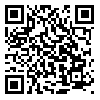Volume 10, Issue 4 (10-2020)
IJOCE 2020, 10(4): 553-570 |
Back to browse issues page
Download citation:
BibTeX | RIS | EndNote | Medlars | ProCite | Reference Manager | RefWorks
Send citation to:



BibTeX | RIS | EndNote | Medlars | ProCite | Reference Manager | RefWorks
Send citation to:
Naserifar Y, Shahrouzi M. A RELIABILITY APPROACH TO COMPARE OPTIMAL SEISMIC DESIGNS OF MULTIPLE-TUNED-MASS-DAMPER. IJOCE 2020; 10 (4) :553-570
URL: http://ijoce.iust.ac.ir/article-1-452-en.html
URL: http://ijoce.iust.ac.ir/article-1-452-en.html
Abstract: (18694 Views)
Passive systems are preferred tools for seismic control of buildings challenged by probabilistic nature of the input excitation. However, other types of uncertainty still exist in parameters of the control device even when optimally tuned. The present work concerns optimal design of multiple-tuned-mass-damper embedded on a shear building by a number of meta-heuristics. They include well-known genetic algorithm and particle swarm optimization as well as more recent gray wolf optimizer and its hybrid method embedding swarm intelligence. The study is two-fold: first, optimal designs by different meta-heuristics are compared concerning their reduction in structural seismic responses; second, the effect of uncertainty in Multi-Tuned-Mass-Damper parameters, is studied offering new reliability-based curves. Monte Carlo Simulation is employed to evaluate failure probabilities. A variety of structural responses are assessed against seismic excitation including maximal displacement, velocity and acceleration. It is declared that the best algorithm for efficiency and effectiveness has not coincided the best based on the reliability traces. Such traces also show that in a specific range of limit-states, algorithm selection has a serious effect on the reliability results. It was found even more than 35% and depends on the response type.
Keywords: seismic control, tuned mass damper, hybrid meta-heuristic algorithm, swarm intelligence, grey wolf optimizer, Monte Carlo simulation.
Type of Study: Research |
Subject:
Optimal design
Received: 2020/10/10 | Accepted: 2020/10/19 | Published: 2020/10/19
Received: 2020/10/10 | Accepted: 2020/10/19 | Published: 2020/10/19
| Rights and permissions | |
 | This work is licensed under a Creative Commons Attribution-NonCommercial 4.0 International License. |





